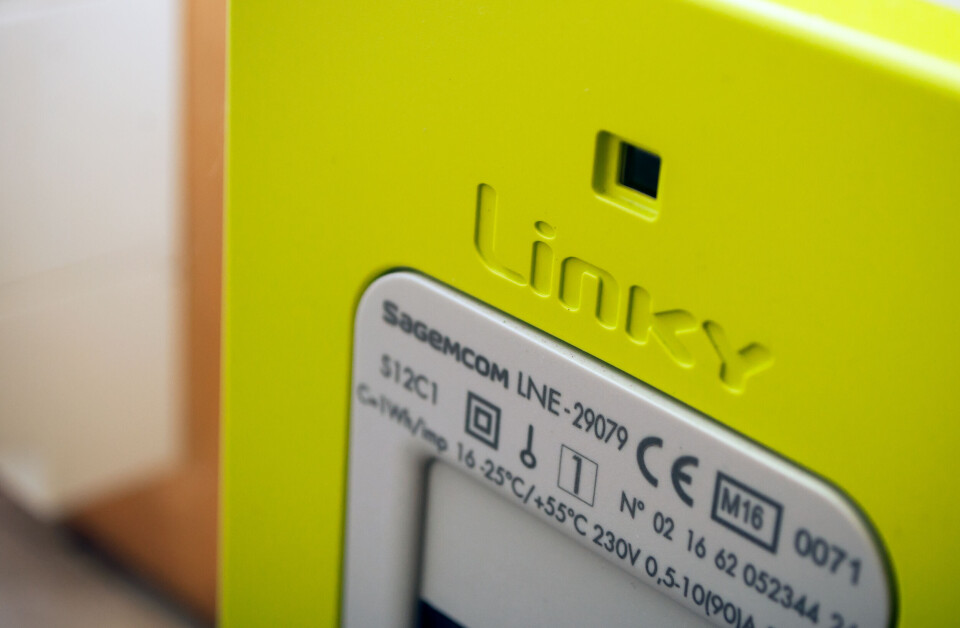-
Britons are the largest foreign community of second-home owners in Nouvelle Aquitaine
See which other departments in the region are popular with British nationals
-
Travellers risk extra costs under new Eurotunnel ticket rule
Some fare options are less flexible and less forgiving of lateness
-
May will be difficult month for train travel in France, warns minister
Two major train unions are threatening to strike and are ‘not willing to negotiate’, he says
Millions who refuse Linky meter at France home will have to pay extra
Up to 3.8 million people face extra fees from next January

People who refuse the installation of a Linky smart meter at their property in France after January 2023 will face paying an extra €50 per year, it has been confirmed, with up to 3.8 million people affected.
This equates to an “surplus” cost of €8.30 every two months, from January 1, 2023. This will total €49.80 over the course of a year.
The figure comes after a public consultation and report into the issue by la Commission de régulation de l'énergie (CRE) energy commission.
The extra fee will be levied because technicians from electricity national grid managing firm Enedis will still have to check the “old generation” meters on-site, rather than have the readings automatically sent via the new system.
Although 90% of households are already estimated to have the smart meters installed, the extra fees could affect up to 3.8 million people. This was the number who still had not had the new meter installed by December 31, 2021, the CRE said.
Read more:Linky meters in France: can I refuse installation?
The extra fees will likely be reevaluated in 2025, the CRE added, with costs likely to rise again.
Smart meters send their readings automatically to the electricity provider, which, Enedis says, ensures fairer and more accurate bills.
Consumers can also track their energy consumption throughout the day, meaning that their use will play a significant role in the ecological transition and make consumption more eco-friendly, Enedis says.
Similarly, changing the power delivered to the home, something which used to involve a technician arriving with fuses, is now done online for €3.76 instead of €37.
Linky controversy
Despite the apparent advantages, the meters have caused controversy since their introduction in 2018.
Critics said there was a risk of deadly radio waves causing health problems, suspicion that data from the meters would be used by government spies, that Linky would allow other people to know intimate details of household life, or that the cost would throw the nation into debt.
There were even protest marches, and reports that a starch or glue within the meters attracted ants.
However, with most of the predicted disasters having failed to materialise, most people have now had a meter installed.
Enedis was legally required to replace 80% of the previous mechanical meter stock by the end of 2021, and it said that it had been on track to do so, with 30 million rolled out by the end of December.
This was in line with a European Commission directive that all member states must change to at least 80% smart meters by that date.
Yet, in November 2020, a Bordeaux court ruled that it could “not agree with Enedis that there is a legal obligation for the consumer to accept the installation of a Linky meter” and that the European directive did “not impose an obligation”.
Other reported controversies include scammers entering homes under the pretext of installation to steal, while other scammers signed inhabitants up to new energy suppliers without their knowledge, again under the pretext of installing the Linky devices.
Enedis has said it does not carry out “any telephone or physical canvassing”, whether by its team or service providers, and said that notice of Linky installation was usually given in writing two or three weeks before the installation date.
Related articles
Growing number of Linky perks help to counter initial suspicions
Why do my French electricity bills keep rising despite competition?
‘We changed our French electricity supplier and saved €1,000 a year’
Linky woes reported as final meters installed across France
























